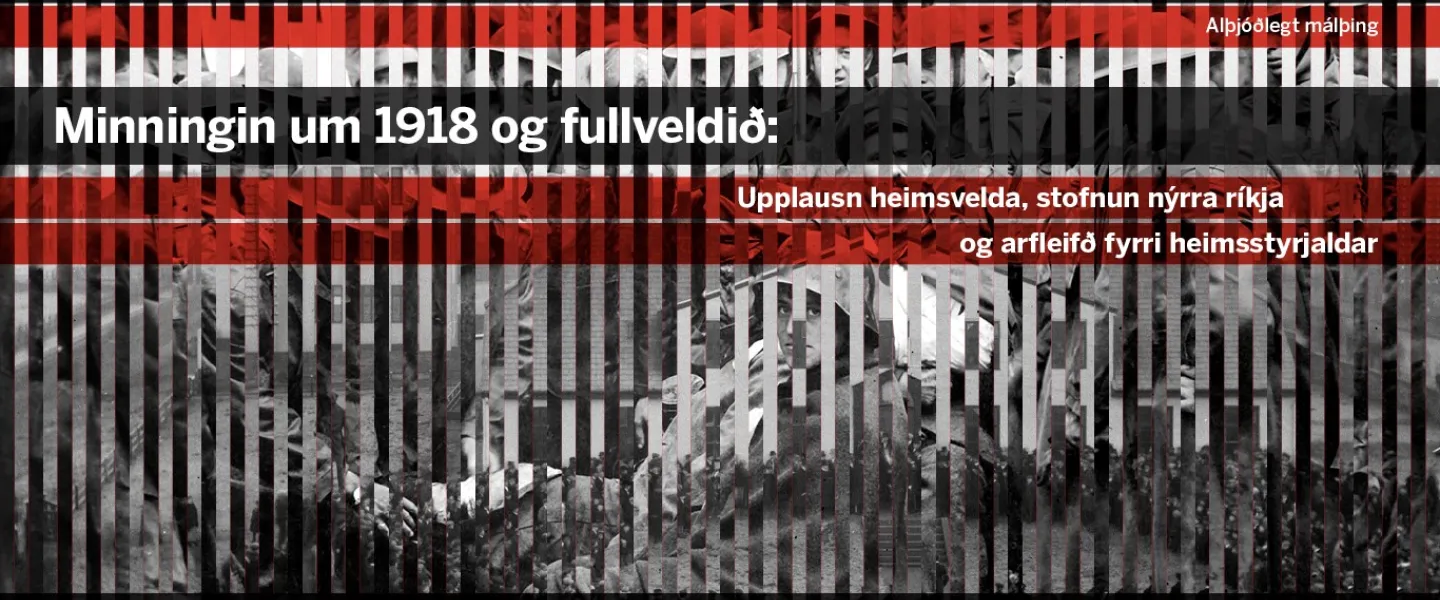
To mark the centenary of the end of the First World War, a symposium – sponsored by the EDDA Research Center and the Institute of History at the University of Iceland (UI) in cooperation with the French and German Embassies in Reykjavik – will be held on 23 November 2018.
The focus is on the broad experience of war and its political reverberations, on the one hand, and its influence on Iceland’s path toward sovereignty from Denmark, on the other. At the symposium, which is entitled Legacies of 1918: Sovereignty, New States and the Collapse of Empires after the First World War, two world-known scholars give keynote lectures. Robert Gerwarth, Professor of Modern History at University College Dublin (UCD), deals with the break-up of empires in 1918, which led to the formation of new nation-states and which created explosive legacies that can still be felt in the present. He stresses the cycle of violence – having begun before the war and continued until 1923 – which affected hundreds of millions across the imperial world. Annette Becker, Professor of Modern History at the University of Paris – Ouest Nanterre La Défense, explores the Great War’s “sacred traces” and the memories of the dead over a century and how mourning, refugees, war, pacifism and sacrifice may have contributed to a global European identity.
Guðni Th. Jóhannesson, President of Iceland, delivers the opening address on the legacy of the Great War in the present by focusing on the role of historians and heads of states. Ragnheiður Kristjánsdóttir, Associate Professor of History at the UI, discusses the limits of the post-World War I extension of citizenship to women by examining voting restrictions, which allowed states to apply different criteria for deciding on the admission to, and exclusion from, the body politic. Valur Ingimundarson, Professor of Contemporary History at the UI, examines the legacy of the First World War for constructing new states and for political divorce proceedings in the 20th and 21st centuries. Sveinn M. Jóhannesson, Postdoctoral Fellow at the Institute of Historical Research, University of London, analyzes the role of the Great War in producing administrative innovations in the United States – ranging from science-industrial-government relations to emergency administration and political surveillance – and their lasting impact on the practices of federal governance.
Ragnhildur Helgadóttir, Professor of Law at the Reykjavík University, explores the use of the concept of sovereignty in Icelandic political and legal discourse in the first two decades of the 20th century and its influence in contemporary Icelandic law, especially with respect to the European integration process. Gunnar Þór Bjarnason, Independent Historian, deals with the role of the Great War in weakening Iceland’s ties with Denmark and in facilitating its recognition as a sovereign state. Guðmundur Hálfdanarson, Professor of History at the UI, concentrates on the changing attitudes towards Iceland’s sovereignty during the Great War, which ranged from viewing it as an illusion to an inalienable right.
Anna Agnarsdóttir, Professor Emeritus of History at the UI, will moderate the symposium, which will take place in the Lecture Hall of the National Museum (Þjóðminjasafnið) from 13:00 to 17:00. The symposium will be conducted in English and is open to the public.